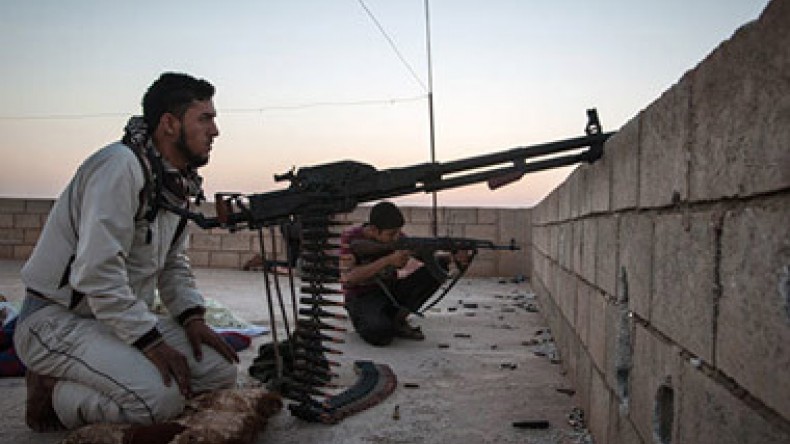
‘No solution for Syria without involvement of Russia and Iran’
Western policy towards Syria is rather like Western policy toward Crimea and Ukraine at the moment – it’s floundering around, talking big but really not having the will to act, political analyst Chris Bambery told RT.
RT: Is pouring more arms into Syria a realistic way to solve the conflict?
Chris Bambery: No, because the Saudi Arabians can offer money but they can’t offer the sort of arms needed by the rebels to reverse the civil war, which is taking place and in which the Assad regime has been winning. The only people who give the rebels the heavy weapons necessary are realistically the Americans, and the Saudis are desperate for the Americans to get involved. The problem the Saudis have is that the Americans and the West last summer wanted to take military action and they were forced to back off in part because of Russia and in a large part because of the public and political reaction in Britain, the US and elsewhere. And there is also a growing concern in the West about who these rebels are. The West and the Americans have always challenged the Syrian National Council and the Free Syrian Army. These people have been pushed aside as they represent very little on the ground and we are seeing the Salafist groups supported by Saudi Arabia coming to the floor. And there is growing concern in the West about the large numbers of these Salafists who might well return to Britain, France and other countries in the West. And therefore, the West has got rather cold feet about getting involved in a civil war. And as that happens, as the rebels lose ground to the Assad regime, the Saudis are becoming even more strident in trying to demand that they give support. But they can’t even secure the vote of the Arab League to get the Syrian National Council represented in the vacant seat because the Assad regime is now being excluded.
RT: All this is happening as Western nations try to exclude Russia from talks, like at the G8 summit, which is the G7 summit now, where Syria is going to be on the agenda. Do you think the West will be able to find a solution without Russia?
CB: The West cannot find a solution which does not involve Russia and does not also involve Iran. They have excluded Russia and they have not allowed Iran to enter despite the agreements on the nuclear weapons. Until they involve Russia and Iran there is going to be no solution in Syria – that is obvious. And also the other problem they have, as I see it, is that the people on the ground [among] the Syrian rebels and Salafists aren’t interested in the peace talks, they aren’t interested in going to Geneva for these discussions. The West has got very little control of them. The Saudis have some control of them and they are not telling them to get involved in the peace talks either. The Saudis have inflamed the situation in Syria, they are hardly in control of it. In my assessment, Western policy toward Syria is rather like Western policy towards Crimea and Ukraine at the moment. It’s floundering around, talking big but really not having a will to act. And it’s almost the worst of the both worlds, the macho-posturing, but actually not backed up by very much indeed.
RT: Even if the West changes its stance on Assad, could they possibly support him against the jihadists?
CB: The Salafists are in a stronger position than they were relatively. But the Assad regime has been winning victories, in terms of the civil war the odds are on them. And I think what the West should be looking at is discussions involving Russia and Iran about the possibility of some sort of change inside Syria, which maintains the Ba’ath party, that allows those rebels, and could include a change at the top. I don’t think Tehran and Moscow will be averse to that, but of course that involves diplomacy and discussion, and the West is not doing that. The exclusion of Russia is really a disaster in terms of the ongoing Syrian peace talks, just as excluding Iran. And the West is posturing by claiming that actually the Syrian National Council represents these rebels. It is important to see that the war in Syria, those people are fighting, the Salafists, the campaign of terror is one of the sorts of terror that have been seen invading Iraq. They regard this as the same fight, the same campaign and the horrific violence, 700 people killed in the last month in Iraq, is part of the same war people are waging in Syria at the moment.
Newsfeed
Videos






























